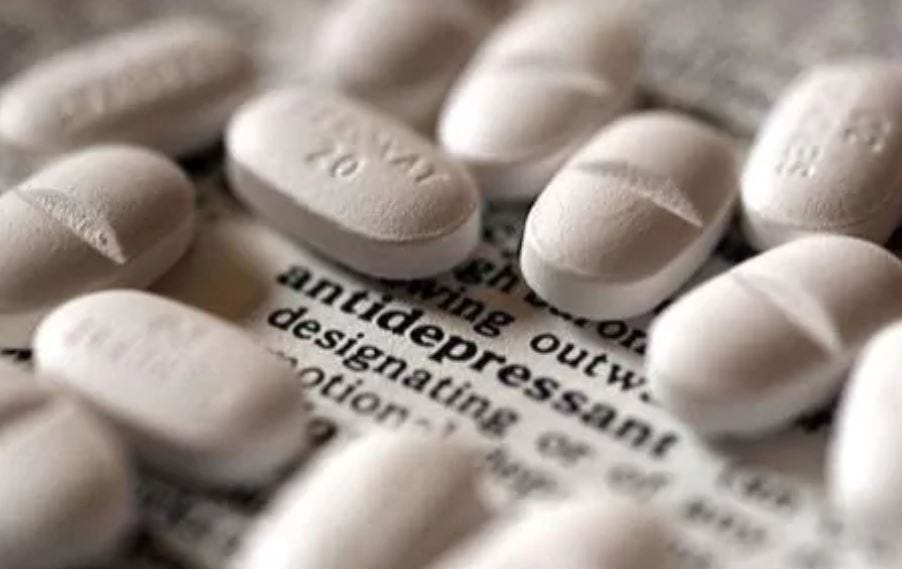
In Addiction Treatment the use of Selective Serotonin Reuptake Inhibitors (SSRIs) in addiction treatment shows great promise in helping individuals overcome substance dependency. SSRIs, commonly used as antidepressants, can play a crucial role in managing addiction by affecting the brain’s chemical messaging system. By addressing the underlying mental health issues that often accompany addiction, SSRIs can contribute significantly to the recovery process.
SSRIs are known to increase the levels of serotonin in the brain, a neurotransmitter responsible for regulating mood and emotions. By doing so, SSRIs can help alleviate symptoms of depression and anxiety, which are commonly associated with substance abuse. For example, individuals struggling with alcoholism may also experience depression, leading them to self-medicate with alcohol. By prescribing SSRIs to address the underlying depression, healthcare providers can support individuals in breaking the cycle of addiction.
Furthermore, SSRIs have been found to reduce cravings and impulsivity, which are key factors contributing to relapse in addiction. For individuals trying to overcome substance dependency, managing these intense cravings can be a significant challenge. SSRIs can help individuals regain control over their impulses and make more rational decisions regarding their substance use. By stabilizing mood and reducing the intensity of cravings, SSRIs provide a valuable tool in the recovery process.
In addition to their direct effects on mood and cravings, SSRIs can also improve the overall success of addiction treatment programs. By addressing co-occurring mental health conditions, such as depression and anxiety, SSRIs can enhance the effectiveness of therapy and counseling sessions. When individuals are in a better mental state, they are more receptive to treatment strategies and better equipped to make positive changes in their lives. This holistic approach to addiction treatment, addressing both the physical and psychological aspects of addiction, can lead to more sustainable recovery outcomes.
What Are SSRIs and Where Did They Come From?
They are a type of medication that has been widely used to treat depression and anxiety disorders. SSRIs, or Selective Serotonin Reuptake Inhibitors, have revolutionized the treatment of mental health conditions. These medications work by increasing the levels of serotonin in the brain, which helps regulate mood. SSRIs have changed the lives of millions of people around the world, offering hope and relief to those struggling with mental health issues.
SSRIs were first introduced in the late 1980s and have since become one of the most commonly prescribed classes of medications for depression and anxiety. Before the development of SSRIs, treatments for these conditions were limited and often had significant side effects. SSRIs offered a new approach to treating mental health disorders, with fewer side effects and a better safety profile.
One of the key benefits of SSRIs is their effectiveness in treating a wide range of mental health conditions. From major depressive disorder to social anxiety disorder, SSRIs have been shown to be effective in reducing symptoms and improving quality of life for many patients. For example, a study published in the Journal of Clinical Psychiatry found that SSRIs were more effective than a placebo in reducing symptoms of generalized anxiety disorder.
How Do SSRI’s Affect the Brain?
SSRIs, or selective serotonin reuptake inhibitors, are a type of medication commonly used to treat depression and anxiety disorders. These medications work by increasing the levels of serotonin in the brain, a neurotransmitter that plays a crucial role in regulating mood. By understanding how SSRIs impact the brain, we can gain insight into their effectiveness in treating these mental health conditions.
SSRIs work by blocking the reabsorption, or reuptake, of serotonin in the brain. This leads to higher levels of serotonin being available in the brain, which can help regulate mood and emotions. For example, when someone is experiencing depression, they may have lower levels of serotonin. By taking SSRIs, they can increase the amount of serotonin in their brain, which can improve their mood and alleviate symptoms of depression.
Moreover, SSRIs can also help create new connections between brain cells, a process known as neuroplasticity. This can be particularly beneficial for individuals with depression, as the disorder is associated with a decrease in neuroplasticity. By increasing neuroplasticity, SSRIs can help improve mood and cognitive function in individuals with depression.
What are the Most Commonly Used SSRIs in Addiction Treatment?
Among the most commonly used SSRIs in addiction treatment are fluoxetine, sertraline, and paroxetine.
Fluoxetine, commonly known as Prozac, is a well-known SSRI that is often used in addiction treatment. It is particularly effective in treating co-occurring depression and substance use disorders. For example, individuals with alcohol use disorder who also suffer from depression may benefit from fluoxetine as it can improve their mood and reduce alcohol cravings.
Sertraline, sold under the brand name Zoloft, is another commonly prescribed SSRI in addiction treatment. It is often used to help individuals with anxiety disorders, such as social anxiety disorder or panic disorder, which may co-occur with addiction. By reducing anxiety symptoms, sertraline can help individuals cope with triggers that may lead to substance use.
Paroxetine, also known as Paxil, is frequently used in addiction treatment to help individuals manage symptoms of post-traumatic stress disorder (PTSD) or obsessive-compulsive disorder (OCD) that may contribute to substance use. By alleviating these symptoms, paroxetine can support individuals in maintaining their sobriety and improving their overall well-being.
In Conclusion
In conclusion, the use of SSRIs in addiction treatment represents a promising avenue for improving the lives of individuals struggling with substance dependency. By addressing underlying mental health issues, reducing cravings, and enhancing the overall effectiveness of treatment programs, SSRIs can make a significant impact on the recovery process. As we continue to explore innovative approaches to addiction treatment, integrating SSRIs into comprehensive treatment plans can offer hope and support to those in need. Let us embrace this potential to transform the landscape of addiction recovery and help individuals build brighter, healthier futures.
If you or someone you know is struggling with a chemical dependency issue reach out to Genesis Medical Detox or Magnolia Ranch Recovery today and get started on the path to long-term recovery.


















